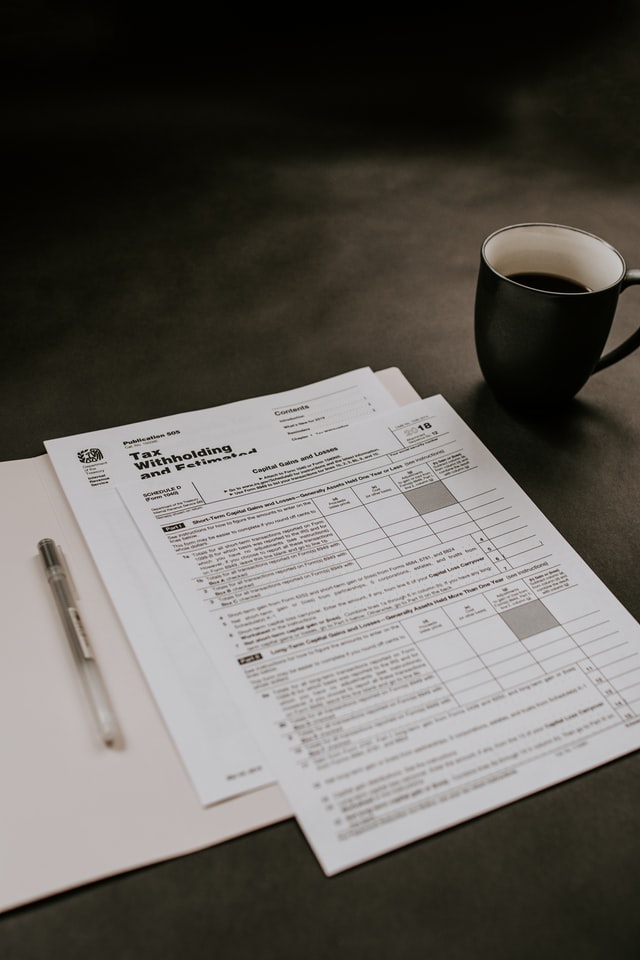This post may contain affiliate links, which means I’ll receive a commission if you purchase through my link at no extra cost to you. Please read the full disclosure here.
Wow, I can’t believe it’s a new year and tax season is upon us! So what does that mean? It’s time to get prepared and organized. There are several benefits to being a small business owner during tax season. One of the biggest perks is the tax write-offs and deductions. Making sure you’re keeping your documents organized and not taking too many shortcuts will go a long way. In this post, I will be going over how to prepare taxes for small businesses! Let’s dive in!
Disclaimer: This material has been prepared for informational purposes only, and is not intended to provide, and should not be relied on for, tax, legal, or accounting advice. You should consult your own tax, legal, and accounting advisors before engaging in any transaction.
Getting organized
So let’s get started with organizing your tax documents so that you’re prepared and squared to do your taxes. Make sure that you have a delegated area for all of your tax documents this can be a file or a folder on your computer. Here are a few documents you should have on hand:
- Bank Statements and Income Information
- W2 Forms and 1099 forms
- Receipts
- Tax Deduction Records
- Expenses
- Car Mileage Info
Next, you can place all of your tax documents into categories to figure your expenses and write-offs for the year. If you use software like Freshbooks, Honeybook, Quickbooks, or an excel spreadsheet, you are way ahead of the game.
Click here to try Honeybook and get 50% off your first year!
Save 30% on QuickBooks for 6 months!
Start managing your workflow with ease.
You can skip this step if this is your first time doing taxes. But I highly recommend pulling up your tax return from the previous year to compare notes. Look at your expenses and write-offs for last year so you can have a better idea for the current year. Also, you can see how far your business has come #goals!
Click here to try Freshbooks to keep track of your bookkeeping today!

Quick Tip: If this is your first year in business, software systems can be pricey. Try using a Google Excel Spreadsheet to do your bookkeeping. It’s a little more work, but it’s worth it. I also recommend updating your spreadsheet bi-weekly or monthly to stay on track.
Tax deductions and write-offs
As a business owner, you can write off tax deductions for your business, which will help lower the amount that you have to pay for your income taxes. Try to write off what you can, but a side note to keep in mind. Make sure you don’t write off too much, as it will look like your business didn’t make any money, which can hurt you if you plan to invest in any property in the future.
Here is a list of some items you can write off:
1. Travel expenses
2. Business meals
3. Business insurance
4. Business related car use
5. Home office expenses
6. Phone and Internet expenses
7. Office supplies business
8. Interest and bank fees
9. Personal service fees
10. Salaries and benefits
11. Depreciation charitable contributions
12. Child and dependent care
13. Education investments
14. Medical expenses
15. Real estate tax mortgage
16. Interest retirement
17. Contributions business
18. Bad debts
19. Advertising and promotion
20. Client and employee
21. Entertainment
22. Start-up expenses
You can write off a few other deductions, so make sure you speak to your accountant. If you decide to prepare your taxes on your own with a platform like TurboTax, make sure you have everything you need to do your taxes correctly.
Common Mistakes When Filing
When preparing your taxes, make sure you avoid some common mistakes to have a straightforward tax season.
- Math Errors
- Missing Tax Deductions
- Important Paperwork
- Entering the Wrong Routing and Account Number
- Unsigned Documents
- Misspelled Names
Avoiding these common mistakes will make your tax filing go smoothly. Taxes are already a headache, so you don’t want to add additional stress. Make sure you and your accountant triple-check all of your documents. Also, try to pay your taxes as soon as possible to avoid any penalties.
In conclusion, it can be exhausting to prepare for tax season; I hope you found some information to help you get ready! Again, if you have any other questions, consult with a tax professional. I hope you have an easy-going tax season this year!
If you enjoyed this post check out, 6 Must-Have Apps For Small Businesses.
Xo DeAndra Jalisa



